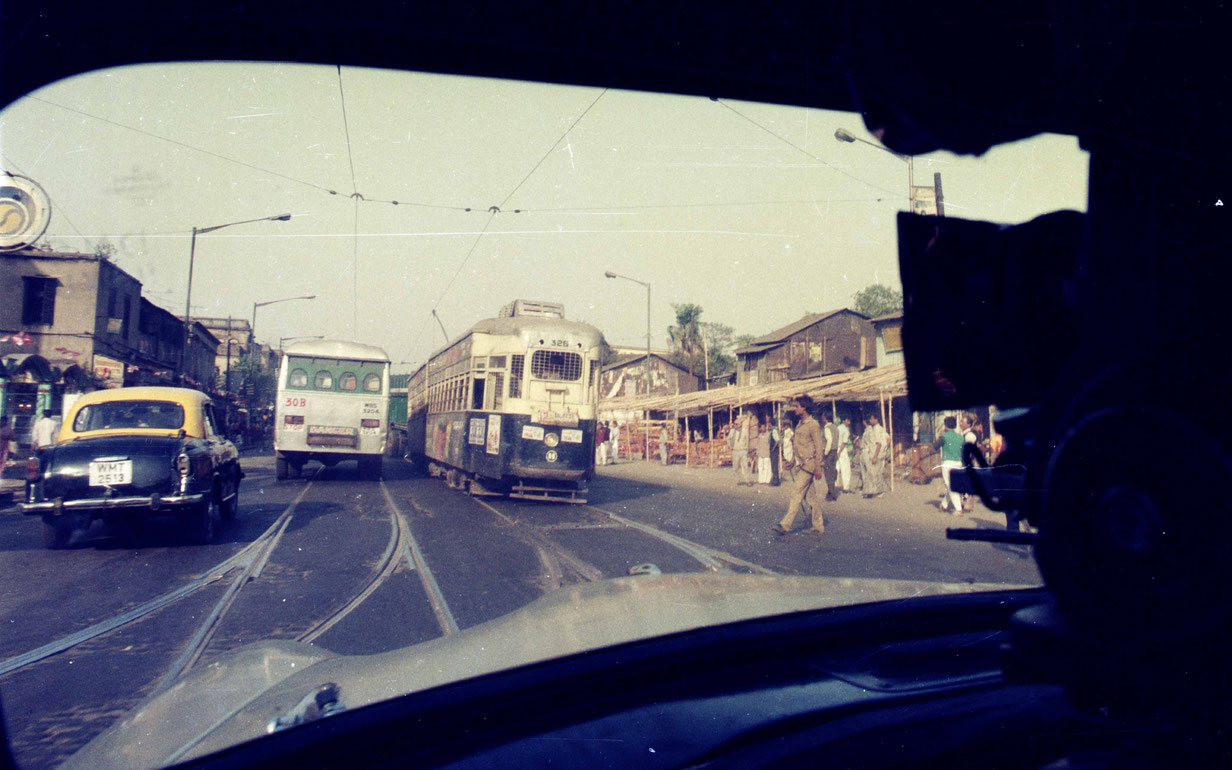(Calcutta) GO
An Indian, when walking, never stops. An obstacle only makes him change directions. To go is like the flow of life itself, ugly as it may be. Calcutta, once one of the most beautiful cities in the world, is now one of the sadest and poorest ones. Its traffic is hell. But still, it flows. (Hans Scheugl) The path is the goal, or, in other words: cinema is a chain of movements, a continuous pan, a sweeping eye which has become used to an existence in constant overstimulation. With its proximity to documentarism and in the simplicity of its conception, (Calcutta) GO points back to Hans Scheugl´s early films (Wien 17, Schumanngasse). The eye of the camera in the car registers the city rushing past, as does the alert ear of the microphone: people and machines, checked off as they are overtaken; shreds of music and voices, engines and car-horns - acoustical scraps of everyday life, mixed with the fleeting motion of the motorized passenger. A film as nine minutes of camera-travelling, as a documentary city-portrait, as a discourse on the possibilities of overtaking with a high risk of collision or on tactical driving under time pressure. Scheugl leaves time and space behind while he is still talking about them. (Calcutta) GO is a fast-moving, nimble photographic report on the capacity of film and the elegance of its movements. (Calcutta) is the location; GO is the director´s instruction derived from the understanding of a survival strategy practiced millions of times. (Stefan Grissemann)

